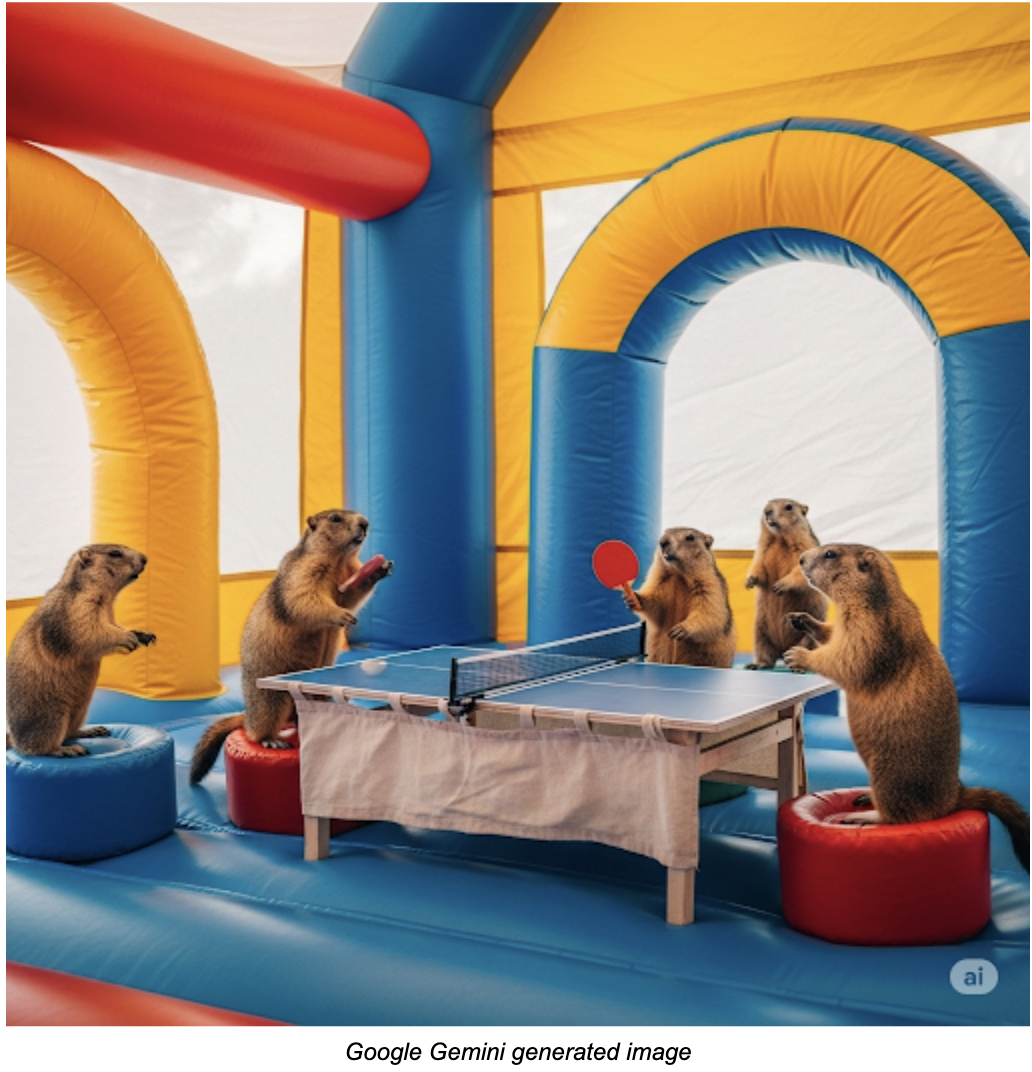Classes start next week and GW is coming back to life. Like many of you, I spent part of the summer reflecting on the last academic year and the year ahead. As has become my habit, I am sharing some of my thoughts beyond our community. The regular View from the Loge in the SMPA Rundown returns next week.
Welcome (almost) back, see you around SMPA.
Advice to students at the start of Fall 2025: Be Curious Without Preconceptions
Students reading this in the fall of 2025 have spent half their lives being told they live in uncertain and unprecedented times. Politics, economics, technology, climate, and foreign policy can feel like marmots playing ping pong in a bouncy house.

In uncertain times it is tempting to grab something familiar. It is easy to say that all we need to do is get back to where we were whenever the person doing the talking says things were better. For many we need to, as both Ronald Reagan and Bill Clinton said before Donald Trump made it famous on hats, “Make America Great Again.” Some, to quote the late, great Warren Zevon, hang all their hope on a figure of speech. But the past is never what we imagined, and that something worked during the Cold War and before social media doesn’t mean it will work now. The answer to 2025 is not to party like it’s 1999.
For others, an uncertain present is an opportunity to imagine a new future. To say that some of the past might have been good (or not), and now is the chance to consider what might be better when the world is more settled. I encourage this approach - but caution against assuming you know what the new answer is.
Many of you reading this may have strong feelings about where we are, how we got here, where we should go next, and how we should get there. Maybe you’re in school to get the tools needed to implement your solutions, or to put the finishing touches on your plans. In saying that we should use this moment to imagine a different future, what some really mean is that they have already imagined it and just need everyone else to agree.
For this group (not you, you wouldn’t do that, I mean someone else reading this) it’s obviously time for the solution they’ve long believed is right. Economic and social uncertainty is, obviously, the result of neo-liberalism, unchecked or not enough capitalism, creeping or galloping socialism, too much/too little/the wrong kind of immigration, social media, AI, COVID, liberal elites, tech-bros, or chemtrails (the conspiracy theory, not the Lana Del Rey song). Given the obvious cause of the problem, our uncertain moment provides a once-in-a-generation opportunity to finally move to socialism, anarchism, monarchism, proportional representation, Mars, or whatever they think the obvious solution to the obvious problem is.
The problem with both approaches - a recent (or recent-ish) status quo was right, we have to hang on to that on one hand, or an established (or established-ish) counter to the status quo is right, we have to shift to that on the other hand - is that it assumes the options we know are the only options we have. Saying that Petr Kropotkin or F. A. Hayek was right limits the debate to what other people already thought of. It brings old ideas to a new challenge. Older writers have a lot to offer, and they might be right. But they might also be wrong.
Which leads me, finally, to advice for this fall: Question with no preconceptions. Be curious not just about people who disagree with you, but also about those whose views you share. Be curious about what views could be discussed, but aren’t. Ask why these are the options and where those options lead us. Ask what now, what next, and then what? Then ask again.
All of which, unsurprisingly for anyone who knows me, leads me to the ancient Greeks. In this case, Socrates. Socrates’ teaching was rooted in his belief that he knew nothing. He had ideas (ideas worth dying for); Socrates wasn’t a philosopher goldfish who forgot everything the moment he heard it. But he went into each encounter hoping to learn something new, to test his ideas, to see what he might not otherwise have thought of. In his 2020 article, Prayer and the Teaching of Christian Ethics: Socratic Dialogue with God? University of Aberdeen professor Brian Brock echoes Kierkegaard’s criticism of Hegel for “individualistic enactment of the intellectual will to power” rather than true dialogue. Instead of Hegel, Brock praises Socrates, “who comes empty to conversation.” (As the title of the article suggests, this is not where Brock ends his argument, but his setup is helpful here).
It is tempting to come to the conversation with pockets full of assumptions and conclusions. It is easy to enter a conversation to learn how the person you’re talking to could come to such obviously absurd conclusions. It can be difficult to be truly, fully, curious. Showing up empty is no small thing.
Take this fall to try. Use the uncertainty of the moment to be less certain. Poke at others’ ideas - and poke at your own ideas even harder. Resist the urge to have a Hegelian dialectic in a closet and come out declaring you’ve fixed everything now it’s just a question of the right meme to persuade everyone to democratically come to your conclusion. Embrace your inner Socrates. Ask and ask again. If everything seems up in the air, then throw everything up in the air and see not just where it comes down but also where it floats and sails. You have plenty of time to figure out where it all lands. For now, embrace being curious in the confusion.
Peter Loge
Associate Professor and Director, School of Media and Public Affairs
The George Washington University

